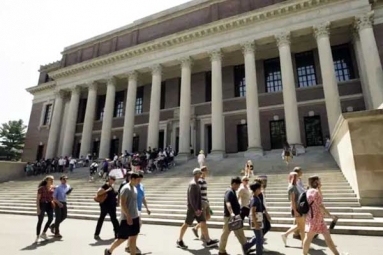
(Image source from: Indian scientist in US creates 'brain' for robots)
A US scientist of Indian-origin has created a new feedback system that would facilitate robots to operate with minimal supervision. In short, the scientist has developed a robot brain.
His latest invention might allow robots to think for themselves, learn, adapt and use active critique to work unassisted.
Dr Jagannathan Sarangapani, from Missouri University of Science and Technology has developed a new feedback system will allow a "follower" robot to take over as the "leader" robot if the original leader has a system or mechanical failure.
“In a leader/follower formation, the lead robot is controlled through a nonholonomic system, meaning that the trajectory is set in advance, and the followers are tracing the same pattern that the leader takes by using sonar. When a problem occurs and roles need to change to continue, the fault tolerant control system comes into use. It uses reinforcement learning and active critique, both inspired by behaviourist psychology to show how machines act in environments to maximise work rate, to help the new, unmanned robot to estimate its new course. Without this, the follower wouldn't have a path to follow and the task would fail.
"Imagine you have one operator in an office controlling 10 bulldozers remotely," said Sarangapani, the William A Rutledge - Emerson Electric Company's distinguished professor in Electrical Engineering at S&T.
"In the event that the lead one suffers a mechanical problem, this hardware allows the work to continue," said Sarangapani.
The innovative research will be useful for robotic security surveillance, mining and even aerial maneuvering.
AW: Suchorita Dutta Choudhury








